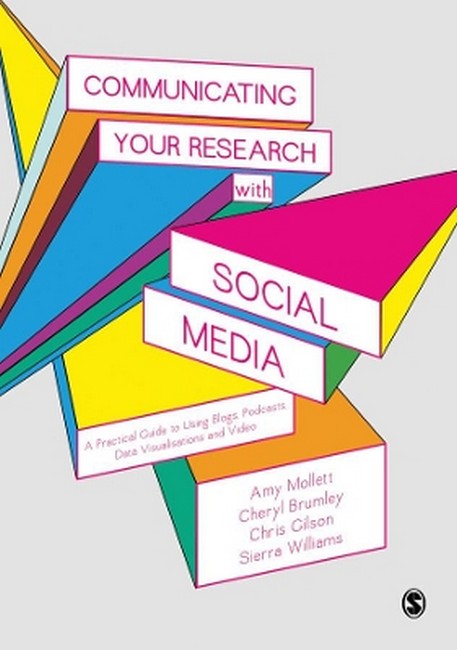Amy is Social Media Manager at the London School of Economics. She previously managed several blogs at LSE, including LSE Review of Books and the Impact Blog. She has published popular guides for researchers on using social media, including 'Using Twitter in university research, teaching and impact activities: A guide for academics and researchers' with Patrick Dunleavy, downloaded by 100,000 readers. With her coauthors, Amy has won a Times Higher Education Award for Knowledge Exchange. Amy is a graduate of the London School of Economics and the University of Sussex, and is interested in academic communication, digital engagement, and podcasting. She tweets @amybmollett. Cheryl is senior producer at The Economist where she produces daily podcasts on economics, politics and science. Previous to The Economist, Cheryl worked for the LSE Public Policy Group for four years, producing the award winning podcast series The LSE Review of Books podcast, as well as podcasts for the LSE Impact Blog, the British Politics and Policy Blog and EUROPP. Additionally, she has worked at the BBC World Service and Monocle Radio. She is also a freelance radio journalist reporting for outlets such as Public Radio International and Deutsche Welle English. Cheryl was named a "New Voices" scholar for her achievements as a minority producer by the Association of Independents in Radio (AIR). With her coauthors, Cheryl has won a Times Higher Education Award for Knowledge Exchange. She tweets @cherylbrumley. Chris is Managing Editor of USAPP - American Politics and Policy, the blog of the LSE's United States Centre (http://blogs.lse.ac.uk/usappblog/). He also launched and managed the LSE's British Politics and Policy blog (2010), and EUROPP - European Politics and Policy (2012), and supports the creation and management of other blogs around the LSE. He has a undergraduate and a Masters degree in Geography, and a postgraduate diploma in Strategic Management, all from the University of Waikato, Hamilton, New Zealand. With his coauthors, Chris has won a Times Higher Education Award for Knowledge Exchange. His interests include blogging, research communication, US politics, urban politics, and community activism. He tweets @chrishjgilson Sierra is Communications Manager at Open Knowledge International - a nonprofit engaged in making information available and usable to empower citizens to change the world. She was formerly the Managing Editor of the LSE Impact Blog: one of the most popular LSE blogs, reaching over 90,000 readers a month. She has an MPhil in Conflict Resolution and Reconciliation Studies from Trinity College, Dublin and a BA in Sociology from the University of San Francisco. Sierra previously provided research and administrative support for the LSE Impact of Social Sciences Project. Her interests are in open scholarship, the role of expertise in society, distributed communication networks, and data sharing. She tweets @sn_will.
Request Academic Copy
Please copy the ISBN for submitting review copy form
Description
Chapter 1: Social media: Why they matter and what they can do 1.1 What is social media? 1.2 The history of social media 1.3 Social media as an influential force in the world 1.4 Social media in education, research and digital scholarship Chapter 2. Social media and the Research Lifecycle 2.1 Models for understanding the research environment 2.2 The Research Lifecycle: an inclusive framework Chapter 3: Creating and sharing blog posts 3.1 What is a blog? Defining blogs 3.2 History of blogs and blogging - From pamphlets to Orwell - blogging's antecedents 3.3 Why blogging is useful across the research lifecycle 3.4 How to create and maintain successful blogs and blog posts 3.5 Sharing your blog posts on social media Chapter 4: Creating and sharing infographics and data visualisations 4.1 Defining infographics and data visualisations 4.2 Infographics and data visualisations: a history in research communication 4.3 Why infographics and data visualisations are useful across the research lifecycle 4.4 How you can create successful infographics and data visualisations for your project 4.5 Sharing your infographics and data visualizations on social media Chapter 5: Creating and sharing audio and podcasts 5.1 Defining podcasts 5.2 A recent history of podcasts 5.3 Why podcasting is useful across the research lifecycle 5.4 How to create a successful podcast series 5.5 Sharing your podcasts on audio platforms and social media Chapter 6. Creating and sharing photos and videos on social media 6.1 Defining photos and videos on social media 6.2 Photos and videos: a history in research communication 6.3 Why photos and videos on social media are useful across the research lifecycle 6.4 How to create successful photos and videos for social media 6.5 Sharing your photos and videos on social media Chapter 7: Digital strategies for research dissemination, engagement and impact 7.1 Crafting a coherent social media strategy 7.2 Measuring dissemination, engagement and impact 7.3 Navigating the risks of online visibility 7.4 Conclusions
Written by experts on communicating research to publics, this book is a steadfast guide to the fast-paced world of social media. It usefully positions the use of social media in the broader contexts of its history as well as the research lifecycle, and the practical chapters are brilliantly illustrated with informative and entertaining examples. From the novice social media dabbler to the platform veteran who wishes to expand her repertoire, academics and other knowledge workers will benefit from this sharply-written book. -- Ella McPherson Adopting social media as a vehicle to communicate academic research is not an easy task and is generally not very well understood. The true value in this book is in providing a step-by-step breakdown of the strategic capabilities of this medium and highlighting the almost endless possibilities, as well as the pitfalls, when using it to promote one's research. It will be a guiding light for professorial 'noobs' looking to espouse the value of their efforts through digital and social channels. -- Brendan J. Keegan

